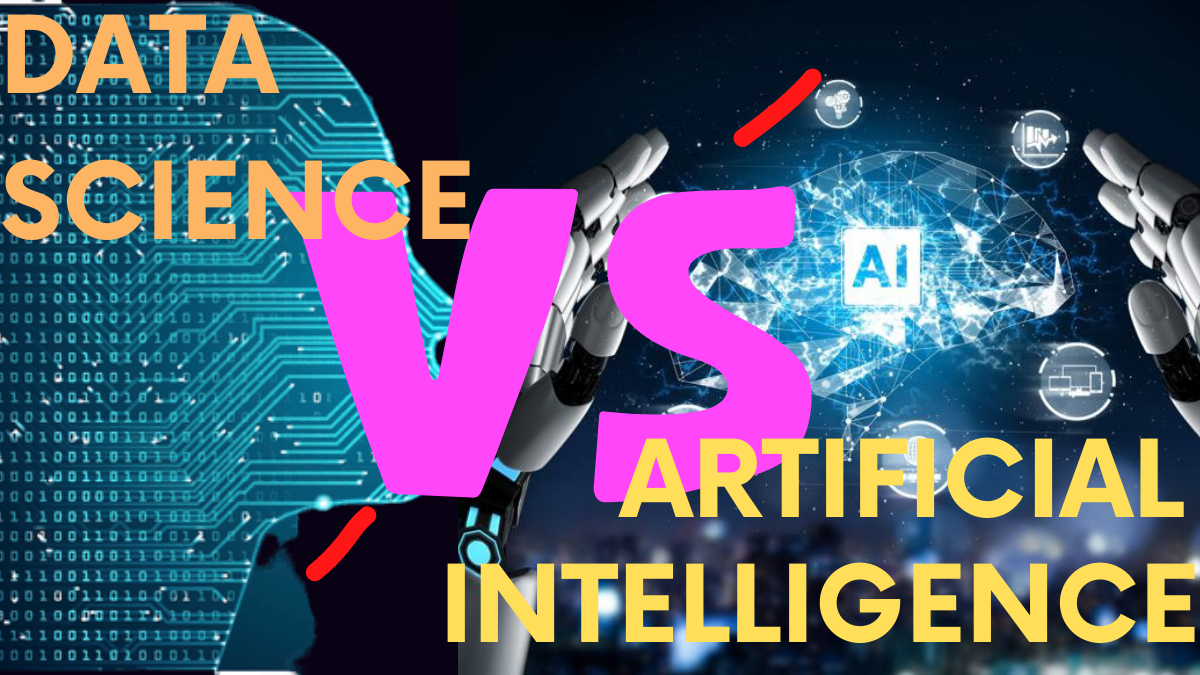According to a report by CB Insights, global investment in AI startups reached a record $39.5 billion in 2020 and is expected to continue growing in the coming years.
Major tech companies and investment firms are among the biggest investors in AI, recognizing the potential of this technology to disrupt traditional industries and create new business opportunities. In addition, governments and research organizations are investing in AI to drive innovation and maintain their competitiveness in the global market.
The growth of AI investment is being driven by advances in machine learning, deep learning, and natural language processing, as well as the increasing availability of big data and cloud computing resources. This has led to the development of new AI applications across a range of industries, including healthcare, finance, retail, and manufacturing.
Overall, the investment trend in AI is positive and is expected to continue growing in the future, as more and more companies recognize the value of this technology and invest in its development.
Artificial Intelligence (AI) is a branch of computer science that deals with the development of intelligent systems that can perform tasks that typically require human intelligence, such as visual perception, speech recognition, decision-making, and language translation. The goal of AI is to create systems that can learn from experience, make decisions, and perform tasks with a high degree of autonomy.
There are two main approaches to AI: narrow AI and general AI. Narrow AI is designed to perform specific tasks, such as image recognition or language translation. General AI, on the other hand, is designed to perform a wide range of tasks that are typically associated with human intelligence.
The development of AI is made possible by advances in machine learning and deep learning, which allow systems to learn from data and improve their performance over time. AI systems are trained on large data sets and use algorithms to identify patterns and make predictions. Some of the most well-known AI applications include Siri, Alexa, and self-driving cars.
AI professionals must have a strong foundation in computer science, mathematics, and statistics, as well as expertise in areas such as machine learning, deep learning, and natural language processing. They must also have an understanding of the ethical and societal implications of AI and be able to work with interdisciplinary teams to develop and deploy AI systems.
AI has the potential to transform a wide range of industries, from healthcare and finance to retail and manufacturing. However, it also raises important ethical and societal questions, such as how to ensure that AI systems are used for the benefit of humanity and how to mitigate the risk of AI being used for harmful purposes.
In conclusion, Artificial Intelligence is a rapidly evolving field that has the potential to revolutionize the way we live and work. It offers a wealth of opportunities for individuals who are passionate about using technology to solve complex problems and make a positive impact on the world.
Data Science is an interdisciplinary field that combines elements of statistics, mathematics, computer science, and domain expertise to extract insights and knowledge from data. The goal of data science is to turn raw data into actionable information that can be used to make informed decisions and solve complex problems.
Data Scientists use a variety of techniques and tools to analyze data, including statistical analysis, machine learning algorithms, and data visualization. They work with large, complex data sets to uncover patterns and relationships that might not be immediately apparent. They also develop predictive models that can be used to make predictions about future events and trends.
Data Scientists must have a strong foundation in mathematics and statistics, as well as programming skills in languages such as Python and R. They also need to have a good understanding of databases and big data technologies, such as Hadoop and Spark. Additionally, they must be able to communicate their findings effectively to both technical and non-technical stakeholders.
Data Science has a wide range of applications, including customer behavior analysis, fraud detection, healthcare, financial services, and marketing. As more and more data is generated by businesses and individuals, the demand for data scientists with the skills to turn that data into valuable insights is increasing rapidly.
Overall, Data Science is a fast-growing and exciting field that offers a wealth of opportunities for individuals who are passionate about using data to drive business outcomes and solve complex problems.
Hot topics: Data science and artificial intelligence
Here are some hot topics in the fields of Data Science and Artificial Intelligence:
Data Science:
- Big Data Analytics: The management and analysis of extremely large data set to extract insights and knowledge.
- Predictive Modeling: The use of statistical algorithms to make predictions about future events and trends.
- Deep Learning: A subfield of machine learning that uses artificial neural networks to learn from data.
- Natural Language Processing: The use of computational methods to analyze and understand human language.
- Explainable AI: The development of AI systems that can provide clear and understandable explanations for their decision-making processes.
Purpose of data science:
The purpose of data science is to extract insights and knowledge from data through the use of scientific methods, algorithms, and models. The goal is to help organizations and individuals make informed decisions by transforming raw data into actionable information.
Data science involves a combination of mathematical, statistical, and computational methods to analyze and understand complex data sets. The data may come from a variety of sources, such as databases, social media, surveys, or sensors, and can be in the form of structured, semi-structured, or unstructured data.
Data science can be applied in many fields, including healthcare, finance, marketing, and sports, among others. It plays an important role in decision-making by providing organizations and individuals with a deeper understanding of patterns, trends, and relationships within the data. This helps them make more informed decisions, optimize operations, and ultimately improve outcomes.
Data science skills:
Data science is a multi-disciplinary field that combines aspects of computer science, mathematics, statistics, and domain knowledge. As such, data scientists need to have a diverse set of skills in order to be effective. Here are some of the key skills that are important for a data scientist:
- Programming: Proficiency in programming languages such as Python or R is essential for data scientists.
- Statistics: Data scientists need to have a strong foundation in statistical methods, including hypothesis testing, regression analysis, and machine learning.
- Data Wrangling: Data scientists often need to clean and transform data before it can be analyzed. They should be familiar with tools and techniques for handling missing data, dealing with outliers, and merging data from multiple sources.
- Data Visualization: Data visualization is an important part of data science. Data scientists should be able to create visualizations that effectively communicate insights and findings to a non-technical audience.
- Machine Learning: Machine learning is a key area of focus for data scientists. They should be familiar with various machine learning algorithms, such as decision trees, random forests, and neural networks, and be able to apply them to real-world problems.
- Communication: Data scientists need to be able to effectively communicate their findings and insights to a non-technical audience. This includes the ability to write reports, give presentations, and explain complex technical concepts in a clear and concise manner.
- Domain Knowledge: Finally, data scientists should have a deep understanding of the domain in which they are working. This allows them to ask relevant questions and develop models that are appropriate for the problem at hand.
Artificial Intelligence:
- Machine Learning: A subfield of AI that focuses on the development of algorithms that can learn from data and improve their performance over time.
- Reinforcement Learning: A type of machine learning that focuses on training AI systems to make decisions in complex environments by trial and error.
- Computer Vision: The use of AI algorithms to analyze and interpret images and videos.
- Robotics: The integration of AI and robotics to create autonomous systems that can perform tasks in the physical world.
- Ethics and Governance of AI: The study of the ethical and societal implications of AI and the development of policies and guidelines to ensure that AI is used for the benefit of humanity.
These topics represent just a few of the many exciting developments taking place in the fields of Data Science and Artificial Intelligence. The rapid pace of technological change and the increasing importance of data and AI in our lives make these fields some of the most dynamic and rapidly evolving areas of study today.
Purpose of artificial intelligence:
The purpose of artificial intelligence (AI) is to create systems that can perform tasks that normally require human intelligence, such as recognizing patterns, understanding natural language, making predictions, and solving problems. AI is designed to automate processes, enhance decision-making, and augment human capabilities.
There are several subfields within AI, including machine learning, computer vision, natural language processing, and robotics, among others. Each of these subfields has its own specific goals and applications.
Some common applications of AI include:
- Healthcare: AI can be used to diagnose diseases, develop personalized treatment plans, and improve patient outcomes.
- Finance: AI can help banks and financial institutions make more informed decisions, detect fraud, and automate routine tasks.
- Marketing: AI can be used to analyze customer data and predict customer behavior, enabling companies to personalize their marketing efforts and improve customer engagement.
- Manufacturing: AI can be used to optimize production processes, predict equipment failures, and improve quality control.
- Transportation: AI can be used to optimize logistics, reduce fuel consumption, and improve safety in the transportation sector.
In general, the goal of AI is to create systems that can perform tasks more efficiently, accurately, and effectively than humans. By doing so, AI has the potential to significantly improve various industries and transform the way we live and work.
Artificial intelligence skills:
To be successful in artificial intelligence (AI), one needs to have a combination of technical and non-technical skills. Here are some of the key skills that are important for an AI professional:
- Programming: Proficiency in programming languages such as Python or R is essential for AI professionals.
- Mathematics: A strong foundation in mathematics, including linear algebra, calculus, and probability, is essential for understanding and implementing AI algorithms.
- Machine Learning: A deep understanding of machine learning algorithms, such as supervised learning, unsupervised learning, and reinforcement learning, is crucial for developing AI systems.
- Data Science: AI professionals need to have a good understanding of data science concepts, including data wrangling, data visualization, and data analysis.
- Computer Vision: For those interested in computer vision, skills in image and video processing, object detection, and segmentation are important.
- Natural Language Processing: For those interested in natural language processing, skills in text analysis, sentiment analysis, and language modeling are important.
- Robotics: For those interested in robotics, skills in control systems, computer vision, and motion planning are important.
- Communication: Effective communication is important for AI professionals, as they often need to collaborate with interdisciplinary teams and explain complex technical concepts to a non-technical audience.
- Problem-Solving: AI professionals need to have strong problem-solving skills and be able to apply their technical expertise to real-world problems.
- Ethics and Safety: As AI becomes increasingly prevalent, it is important for AI professionals to understand the ethical and safety implications of their work. They should have a good understanding of topics such as privacy, bias, and transparency.
Differences Between Data Science And Artificial Intelligence
Data Science and Artificial Intelligence (AI) are two distinct but related fields, and understanding the differences between them is important for individuals who are interested in pursuing careers in either field. While both fields involve the analysis of data, there are several key differences between them.
Data Science and Artificial Intelligence (AI) are two distinct but related fields, and understanding the differences between them is important for individuals who are interested in pursuing careers in either field. While both fields involve the analysis of data, there are several key differences between them.
- Goals: The main goal of data science is to extract insights and knowledge from data. Data scientists use statistical techniques, machine learning algorithms, and other methods to uncover patterns and relationships in data, and to make predictions based on that data. In contrast, the main goal of AI is to develop intelligent systems that can perform tasks without human intervention. AI systems use algorithms and techniques such as machine learning and deep learning to automate tasks and make decisions based on data.
- Focus: Data science is focused on analyzing data to extract insights, while AI is focused on developing systems that can perform tasks and make decisions based on that data. Data scientists may use AI techniques and algorithms to help them analyze data, but their primary focus is on the insights that can be gleaned from the data, rather than on the development of AI systems.
- Skillset: Data scientists need a combination of technical and non-technical skills, including proficiency in programming languages such as Python and R, statistical analysis, and data visualization. AI professionals, on the other hand, need to have expertise in areas such as machine learning, deep learning, computer vision, and natural language processing.
- Data Input: Data science focuses on structured data, such as numbers and text, while AI can work with both structured and unstructured data, such as images, videos, and audio. AI systems can be trained to recognize patterns and make decisions based on unstructured data, which is often more challenging to analyze with traditional data science techniques.
- Problem-Solving Approach: Data scientists use a hypothesis-driven approach to problem-solving, where they form a hypothesis based on their understanding of the data and then use statistical techniques to test that hypothesis. In contrast, AI systems use a data-driven approach, where they are trained on large amounts of data and then use that training to make decisions and solve problems.
- Human Involvement: Data scientists often work in collaboration with subject matter experts and stakeholders to understand the problem they are trying to solve, while AI systems are designed to operate independently, with minimal human intervention.
- Impact: The impact of data science is often limited to the insights it provides, while the impact of AI can be much broader, as AI systems can automate tasks and make decisions that have real-world consequences.
In conclusion, while Data Science and AI have some similarities, they are distinct fields with different goals, skill sets, and approaches to problem-solving. Understanding the differences between these fields is important for individuals who are interested in pursuing careers in either field and for organizations that are looking to leverage the power of these technologies to drive business outcomes.





